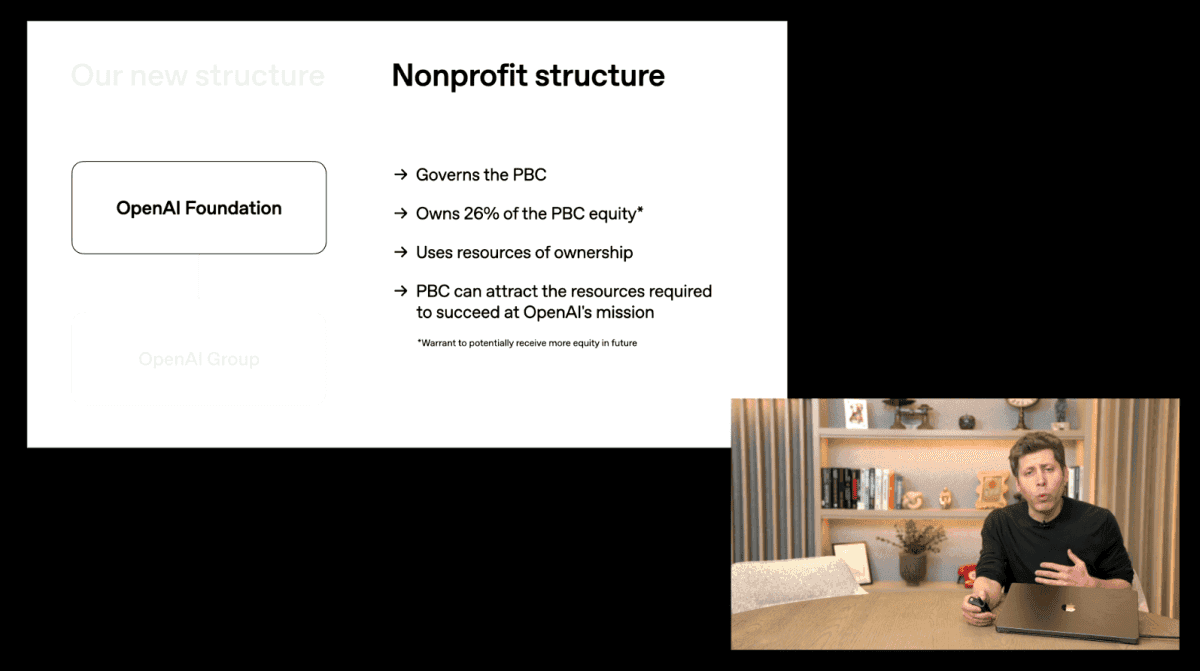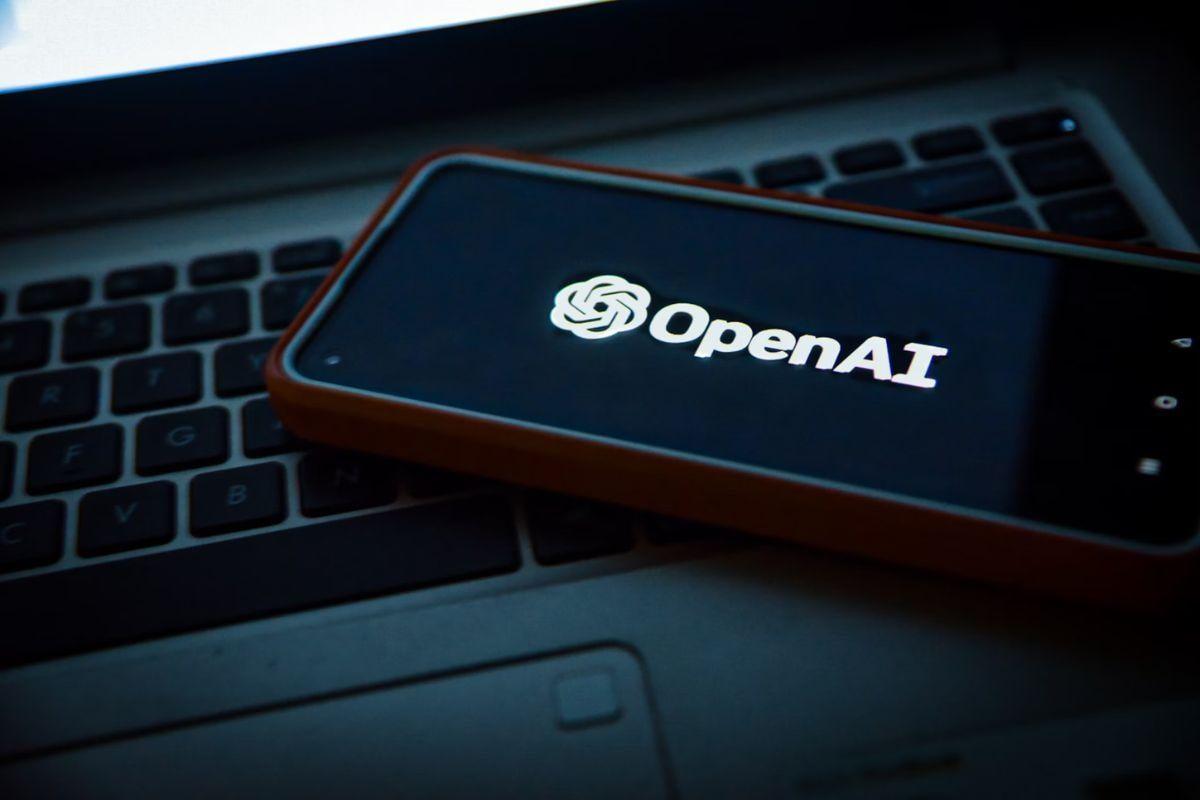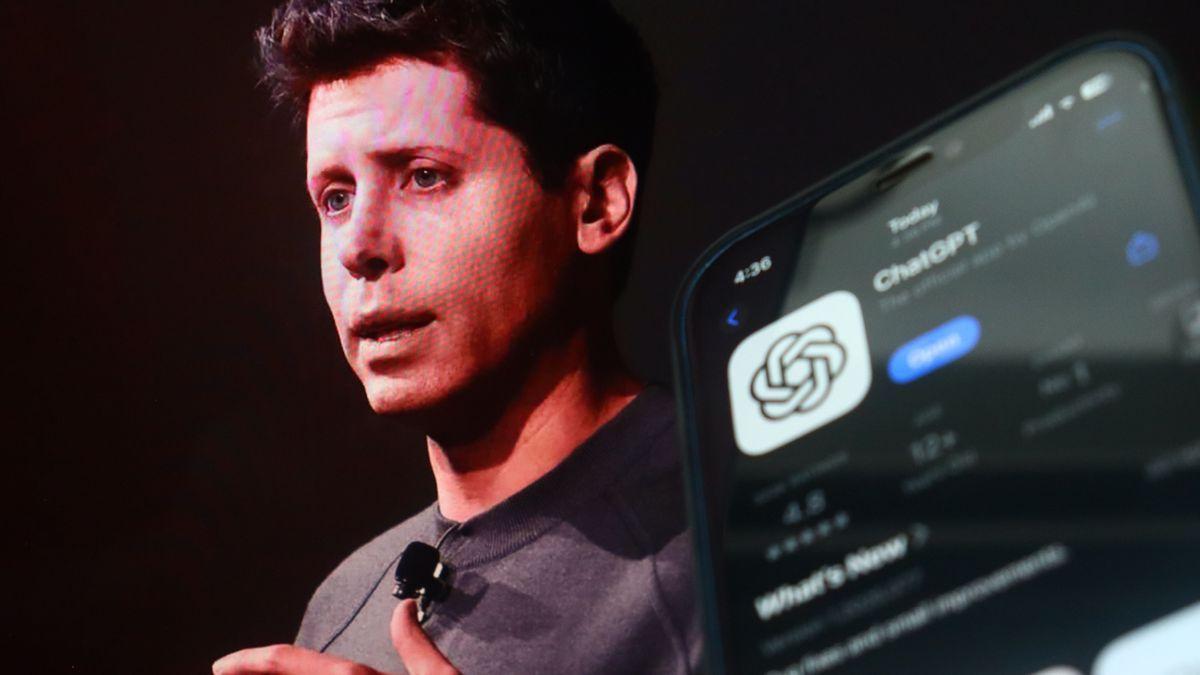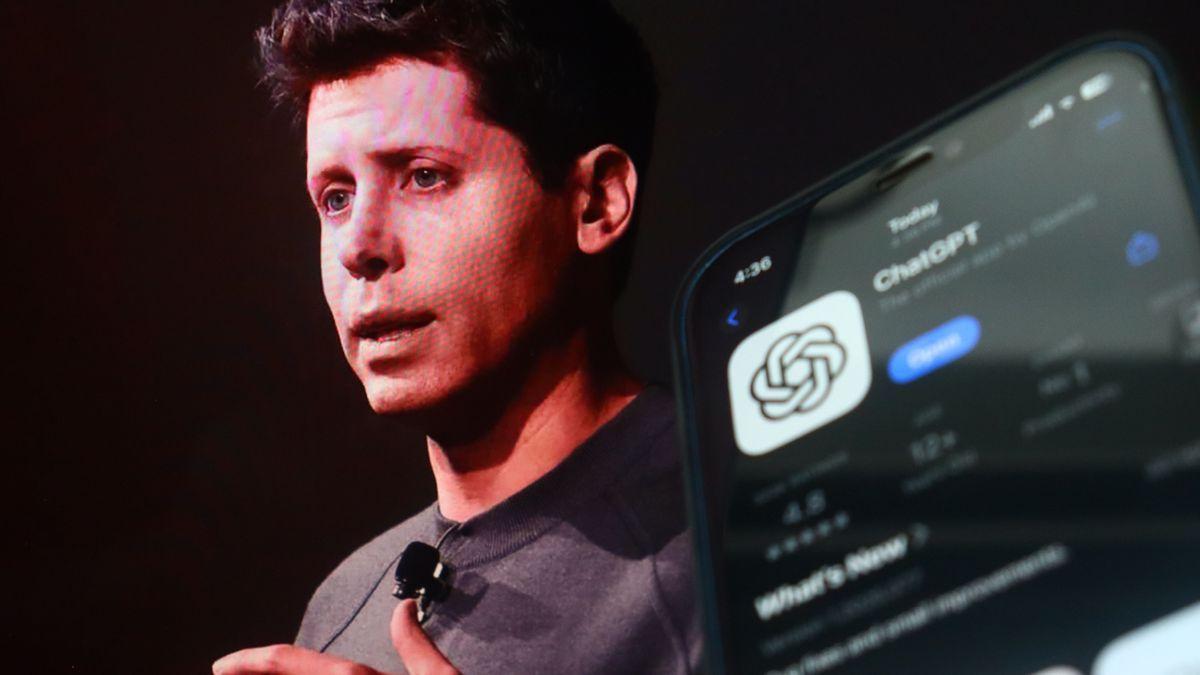OpenAI Charts Ambitious Path to Autonomous AI Researchers by 2028
3 Sources
3 Sources
[1]
Sam Altman says OpenAI will have a 'legitimate AI researcher' by 2028 | TechCrunch
OpenAI says its deep learning systems are rapidly advancing, with models increasingly able to solve complex tasks faster. So fast, in fact, that internally, OpenAI is tracking towards achieving an intern-level research assistant by September 2026, and a fully automated "legitimate AI researcher" by 2028, CEO Sam Altman said during a livestream Tuesday. The ambitious timeline comes on the same day OpenAI finalized its transition to a public benefit corporation structure, moving away from its non-profit roots. This restructuring releases OpenAI from limitations tied to its non-profit charter, while also opening up new opportunities for capital raising. Jakub Pachocki, OpenAI's chief scientist, joined Altman on the livestream. He described this AI researcher -- not to be confused with a human who researches AI -- as a "system capable of autonomously delivering on larger research projects." "We believe that it is possible that deep learning systems are less than a decade away from superintelligence," Pachocki added. He described superintelligence as systems smarter than humans across a large number of critical actions. To achieve those goals, OpenAI is betting on two key strategies: continued algorithmic innovation and dramatically scaling up "test time compute" -- essentially how long models spend thinking about problems. Current models can handle tasks with a roughly five-hour time horizon and match top human performers in competitions like the International Mathematics Olympiad, Pachocki said. But he believes this horizon will extend rapidly, in part by allowing models to spend far more computational resources thinking through complex problems. For major scientific breakthroughs, Pachocki said, it would be worth dedicating entire data centers' worth of computing power to a single problem. OpenAI says these goals are in line with the firm's overall push to advance scientific research and allow AI to potentially make discoveries faster than human researchers, tackle complex problems beyond current human capabilities, and dramatically speed up technological innovation across multiple fields like medicine, physics, and technology development. Altman also said the restructuring creates a framework to support OpenAI's aggressive timeline for AI research assistants while maintaining a commitment to responsible AI development. Under the new structure, the non-profit OpenAI Foundation, which is focused on scientific advancement, will own 26% of the for-profit and will govern the research direction. The non-profit also has a $25 billion commitment to use AI for curing diseases and will help manage AI research and safety initiatives. Per Altman, the for-profit arm's ability to raise more funds means it can scale the necessary infrastructure buildout to achieve scientific advancements. Altman said OpenAI has committed to 30 gigawatts of infrastructure, which is a $1.4 trillion financial obligation, over the next few years.
[2]
OpenAI roadmap revealed: AI research interns by 2026, full-blown AGI researchers by 2028
This shift toward "personal AGI" could turn AI from a chat tool into a true collaborator Sam Altman says within the next year, OpenAI expects its models to work like AI "research interns", and by 2028, they could function as fully independent researchers. It's a bold timeline, and one that hints at what Altman calls a more "personal AGI" future, where AI isn't just answering questions but actually helping you think. These comments surfaced during a recent livestream appearance in a response to "When will AGI (Artificial General Intelligence) happen?" to which Altman replied "I would say the AGI term has become hugely overloaded and it'll be this process over a number of years. Our goal is by March 2028 to have a true automated AI researcher and define what that means rather than satisfy everyone with a definition for AGI." It's clear that OpenAI wants its AI capabilities to go beyond ChatGPT and become a tool that can genuinely improve workflows around the world, but that sounds easier said than done. If Altman's claim that OpenAI will provide the wider population with an AI research intern in 2026 is correct, what will that mean exactly? Well, think of it as ChatGPT with added functionality to help you complete your tasks. You might ask this future ChatGPT to read a paper, compare it with other work, and highlight what's new or requires improving. Maybe it could even help you understand a technical concept and suggest next steps? Today's chatbots can do bits of this, but only when you give them a structure to follow. Altman seems to imagine a version of AI that starts making useful decisions on its own. An AI research intern sounds like it could be the next logical step for ChatGPT, but truly reliable AI requires a way to remove AI hallucinations altogether, so you can fully trust the answers you're given. If not you'll need to keep double-checking the work of the AI intern, completely defeating the purpose of the tool. Until AI is 100% accurate, no "AI research intern" will ever be useful enough to actually help you do your job. Altman's 2028 target is far more dramatic. Instead of assisting a human researcher, he's talking about an AI that can act like one, which means designing and testing ideas independently, then presenting the results to a human. This sounds like something more in line with a colleague than a chatbot. If that sounds worrying, then I totally feel the same way. Altman's vision of an "AI researcher" could be the AI we've been fearing all along, and while it won't be full AGI as such, it would still completely overhaul the workforce. That said, it makes sense that this is where AI could be heading. AI is good at navigating huge piles of information, so letting it run small experiments is a natural step in improving its capabilities. OpenAI has hit aggressive milestones before, but moving from today's chatbots to genuine research agents is a steep climb. There are safety issues, accuracy problems, and the ever-present question of who controls these systems. Even if OpenAI is confident in its timeline, the quality bar matters more than the calendar. An AI that confidently gives wrong answers is worse than useless. You need something that can show its working, cite sources, and admit when it doesn't know. If Altman's predictions are correct then the date we finally reach AGI isn't necessarily important. In essence, OpenAI and its competitors are already working on turning AI from a tool that responds to us into one that works alongside us.
[3]
Here's When OpenAI Plans to Launch Its First 'AI Researcher'
Sam Altman has confirmed that the company will launch new AI hardware OpenAI's Sam Altman and Jakub Pachocki have announced that the US-based AI firm is planning to launch Automated AI Research by 2028. Pachocki, OpenAI's Chief Scientist, claims that this allows AI models to make scientific discoveries and technologies. The company believes that it is moving towards achieving autonomous intelligence. While this is a few years away, OpenAI is set to launch the Automated AI Research Intern tools, which help people accelerate the research process. Moreover, Altman has confirmed that it will also launch new AI hardware in the coming years. OpenAI's Automated AI Research Release Timeline During a livestream on Tuesday, Altman and Pachocki shared a broad timeline for Automated AI Research, which would be a step in the direction of achieving artificial general intelligence (AGI). OpenAI plans to launch a fully functioning version of Automated AI Research Intern by September 2026, about 11 months from now, and Automated AI Research tools by March 2028. With the intern tools, Pachoki explains, the AI firm plans to "meaningfully accelerate" the research process. OpenAI says the Automated AI Research tool will be able to autonomously deliver research reports on various topics. This would mark a step in the direction of achieving "superintelligence" and AGI, where AI agents will be able to make scientific discoveries and invent novel technologies with the help of deep learning. The company is also planning to scale test time compute, which quantifies the amount of time spent by AI models thinking about a query, performing research, and generating a response. OpenAI's Chief Scientist also said that the current generation of AI models is capable of performing five-second, five-minute, and five-hour tasks. Gradually, he believes this will expand, as it has over the years, allowing AI models to execute five-month and five-year tasks. Additionally, Sam Altman also confirmed that OpenAI is developing devices, which will be launched in the next couple of years. OpenAI's hardware is claimed to allow users to "take AI anywhere" with the help of ChatGPT. Currently, Google's Gemini AI offers a Deep Research tool that allows users to add a prompt regarding a topic. In return, the AI agent will generate a detailed research plan for the user, which can later be tweaked depending on the use case. However, Deep Research is not capable of autonomously researching topics and making scientific discoveries. As mentioned, it needs a human being to write a prompt for it to initiate research. PayPal Adopts Agentic Commerce Protocol to Enable Payments on ChatGPT Payment gateway service PayPal announced on Tuesday that it is adopting the Agentic Commerce Protocol (ACP) to allow users to make payments on ChatGPT. The ACP standard, announced in September, is OpenAI's new open standard protocol that powers AI agentic commerce. It can be used by businesses, users, and AI chatbots to search for products and complete purchases. To simplify, users will now be able to make card payments via PayPal on ChatGPT Instant Checkout. OpenAI currently allows ChatGPT Plus, Pro, and free users in the US to purchase goods directly from the chatbot windows. The company has onboarded Etsy merchants and will allow Shopify sellers, like Glossier, Skims, Spanx, and Vuori, to register later. In India, OpenAI has partnered with National Payments Corporation of India (NPCI) and RazorPay to enable agentic commerce in India. However, the feature is yet to roll out to ChatGPT users in the country.
Share
Share
Copy Link
OpenAI CEO Sam Altman reveals plans for AI research interns by 2026 and fully autonomous AI researchers by 2028, marking a significant step toward artificial general intelligence while restructuring as a public benefit corporation.
OpenAI's Autonomous AI Research Goals
OpenAI CEO Sam Altman and Chief Scientist Jakub Pachocki announced a clear timeline for autonomous AI research: "intern-level" assistants by September 2026 and fully autonomous "legitimate AI researchers" by March 2028
1
. This ambitious plan is supported by the company's recent transition to a public benefit corporation, aiming to solidify its long-term development strategy.
Source: TechCrunch
Developing Advanced AI Research Capabilities
The 2026 AI intern is expected to serve as an advanced analytical tool, capable of reviewing academic literature, comparing findings, and identifying new research avenues for human oversight. By 2028, OpenAI aims for AI systems that can independently generate hypotheses, design experiments, and validate results before presenting their discoveries
2
. These systems are anticipated to significantly accelerate scientific and technological progress through deep learning.
Source: Gadgets 360
Unprecedented Compute Scaling and Investment
OpenAI's strategy hinges on continuous algorithmic innovation and a massive increase in "test time compute" – the computational power dedicated to problem-solving. The company plans to extend AI task horizons from hours to months or years, potentially dedicating entire data centers to tackle single, complex research problems
1
. This scaling is backed by a $1.4 trillion infrastructure commitment over the coming years, with the non-profit OpenAI Foundation retaining 26% ownership and securing a $25 billion pledge for health-related AI1
.
Source: TechRadar
Related Stories
Overcoming Challenges Towards Superintelligence
Significant technical challenges remain, particularly in achieving absolute AI accuracy and eliminating "hallucinations." Critics argue that constant human verification will be necessary until AI reaches near-perfect reliability, impacting efficiency
2
. Despite these hurdles, Pachocki projects these developments as a pathway to "superintelligence" – AI systems surpassing human intellect – potentially within a decade1
.References
Summarized by
Navi
[2]
[3]
Related Stories
Recent Highlights
1
Samsung unveils Galaxy S26 lineup with Privacy Display tech and expanded AI capabilities
Technology

2
Anthropic refuses Pentagon's ultimatum over AI use in mass surveillance and autonomous weapons
Policy and Regulation

3
AI models deploy nuclear weapons in 95% of war games, raising alarm over military use
Science and Research








